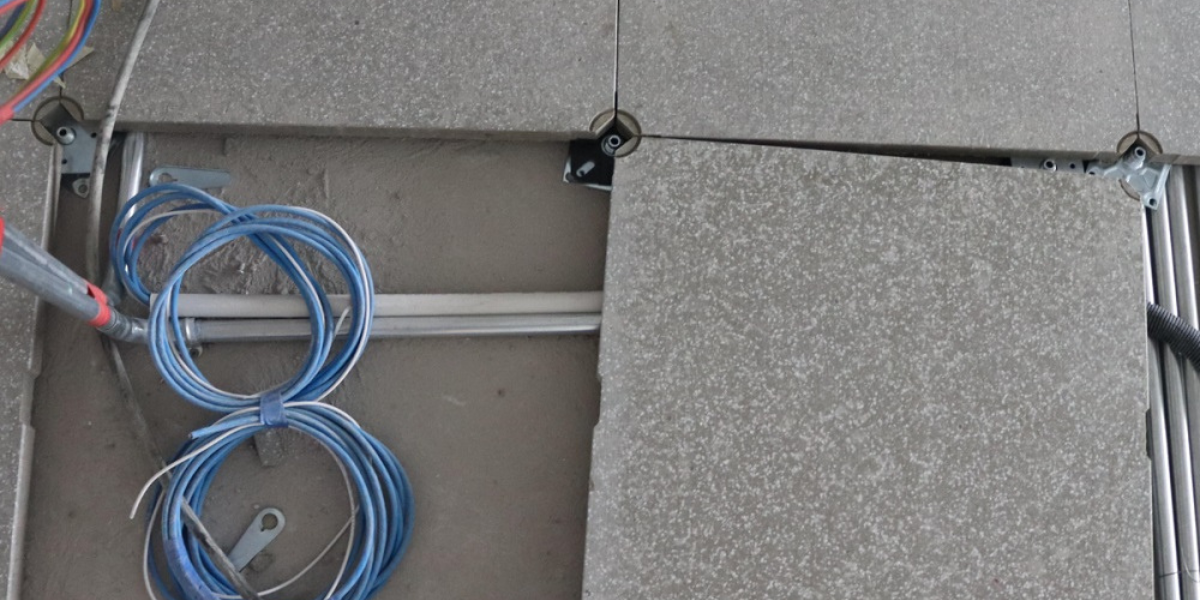In winter, with low temperatures and high humidity, maintaining raised floors is essential to maintain the life of the floor as well as keep the living space comfortable. Cold weather can cause changes in the structure of the floor, leading to long-term damage if not properly cared for. Here are some tips to help you care for and protect your raised floors during the winter.
1. Use Heaters and Air Conditioners
- In winter, dry and cold air can cause raised floors to shrink, causing gaps and cracks in the floor surface. Maintaining a stable temperature and humidity in the space is very important. You can use a heater or air conditioner to keep the indoor temperature stable, avoiding large temperature fluctuations that cause abnormal expansion and contraction of the floor.
- Adjust the temperature to a stable level, not too hot to avoid drying the air and causing cracks in the floor.
2. Control Humidity in the Air
- Humidity can be high in winter, especially in areas with heavy rain or snow. When the humidity in the air is too high, the raised floor can absorb moisture and lead to blistering or deformation. Using a dehumidifier in the room can help reduce mold and protect the floor from long-term damage.
- Place the dehumidifier in areas with high humidity or near windows and doors to prevent water from accumulating on the floor.
3. Avoid Water Exposure
- Winter often comes with snow or heavy rain, which can cause water from outside to seep into the house. Water that accumulates on the raised floor surface can cause slippery conditions and damage the structure of the floor. To prevent this, you should dry the floor as soon as you see water and place doormats at the entrance to limit water on the floor.
- Install additional waterproof mats in areas that are often at risk of water seepage such as windows, balconies or entrances.
4. Regular Floor Cleaning
- Although winter is less dusty than summer, regular floor cleaning is still necessary. In particular, dust and dirt can stick to shoes and fall onto the floor surface, causing scratches and reducing the life of the floor. Make sure you clean up dirt and debris on the floor daily to maintain the beauty of the raised floor.
- Use a soft broom or vacuum cleaner to clean the floor surface without scratching the coating.
5. Regular Inspection and Maintenance
- During the winter, you should regularly check the structural details of the raised floor, including joints, brackets, or chair legs for signs of deterioration caused by cold weather. If there are rubber covers on the legs of tables, chairs or brackets, check them to make sure they are not cracked or damaged by the weather. If necessary, replace it promptly to avoid negative effects on the floor.
- Schedule regular maintenance for raised floors to promptly detect and repair minor problems before they become serious.
Caring for raised floors in winter requires careful attention to protect the floor from harsh weather elements. By maintaining stable temperature and humidity, avoiding contact with water, cleaning and checking regularly, you will help the raised floor maintain its long-term durability and maintain its beauty as new. Proper floor care will help you avoid unnecessary damage and prolong the life of the floor in winter.
Hoang Ha IBT Group, a unit specializing in raised floor construction, is always committed to providing optimal solutions for the installation and maintenance of raised floors, ensuring quality and long-term durability for the projects.


